DUSHANBE WATER PROCESS: UNICEF Plans to Establish a Youth for Water and Climate Network in Tajikistan
Read also
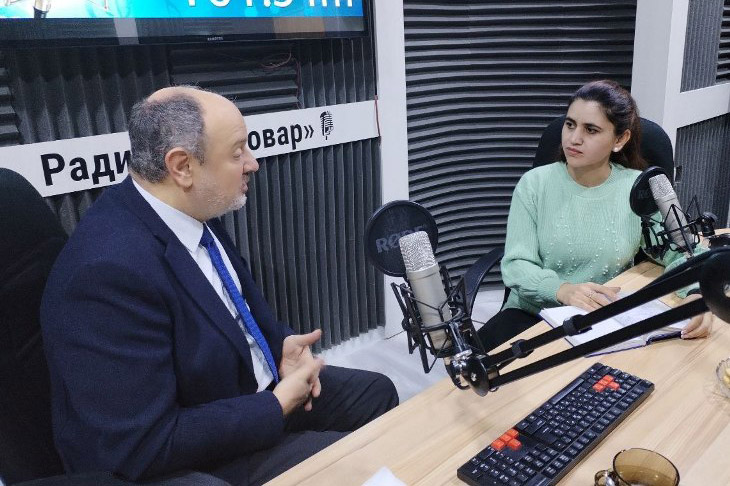
DUSHANBE, 16.03.2024 (NIAT Khovar) – From June 10 through June 13, 2024, Dushanbe will host the third high-level international conference dedicated to the International Decade for Action “Water for Sustainable Development” 2018-2028, within the framework of the Dushanbe Water Process. The main goal of the Third Dushanbe Water Conference is to further strengthen joint efforts and support the implementation of voluntary commitments included in the Water Action Program of the UN Water Conference. Regarding the preparation of the UNICEF Representative Office in Tajikistan for this conference, Khovar’s correspondent Manizha Bahromzoda interviewed with the head of this structure Arthur van Diesen.
Khovar: How do you assess the importance of the Third Dushanbe Water Conference for the achievement of the Sustainable Development Goals (SDGs)?
Arthur van Diesen: The UN Water Conference is a critical moment that shines the global spotlight on the importance of water as a unifying purpose for communities and nations. It is also an important event to shed light on the child’s right to grow up in a clean and safe environment, particularly in relation to SDG 6 (ensure access to water and sanitation for all).
The consequences of unsafe water, sanitation and hygiene (WASH) on children can be deadly. Over 700 children under age 5 die every day of diarrheal diseases due to lack of appropriate WASH services. In areas of conflict, children are nearly 20 times more likely to die from diarrheal disease than from the conflict itself. With 2 billion people worldwide still lacking access to safely managed drinking water, 3.6 billion people lacking access to safely managed sanitation, 2 billion people lacking access to handwashing facilities with soap, and 419 million people practicing open defecation, universal access to WASH services and systems is urgently needed.
The Third Dushanbe Water Conference is key in taking stock of progress made in achieving SDG 6 and the water-related goals and targets, as identified in the Water Action Agenda. The Conference also aims to share best practices and innovative solutions, strengthen partnerships among stakeholders, promote the role of water in sustainable development, raise awareness and mobilize political will to accelerate progress towards achieving the water-related goals of the 2030 Agenda, and contribute to the High-Level Political Forum on Sustainable Development in 2024 and the preparatory process for the UN Water Conference in 2026.
Khovar: What is the role of the Third Dushanbe Water Conference in promoting the participation of children and young people in actions related to enhancing access to water for the most marginalized?
Arthur van Diesen: UNICEF believes that it is absolutely key to position youth and children at the centre of the Water Action Agenda. The Conference will provide an opportunity for children and young people to be involved as key stakeholders in all discussions, including forums and interactive dialogues. In addition, as the theme of the conference focuses on «commitments to action», it will also enable young people to participate in the concrete review of actions and further planning both at the Tajik and international levels.
Khovar: What is UNICEF Tajikistan planning/organizing for this conference?
Arthur van Diesen: UNICEF will support the Conference Secretariat in planning and organizing the Youth and Children’s Water Forum, which will be a global event. In order to strengthen Tajikistan’s commitment to the water and climate agenda, particularly from the perspective of youth and children’s participation, UNICEF is planning to establish a Youth for Water and Climate Network in Tajikistan, which will be a group of young and dynamic individuals who are passionate and forward-looking and who want to take a leadership role in the field of water in Tajikistan. For the conference, the network will also work to develop the «Youth Water and Climate Plan» for Tajikistan to support the national water agenda and help accelerate SDG 6. This network of young people and the plan they develop will be resourced and implemented with the support of relevant key stakeholders in the water sector. In addition, UNICEF will also engage in interactive dialogues under the themes of water for health, water for climate, resilience and environment, and water for sustainable development.
Khovar: Has UNICEF Tajikistan already organized any events or meetings related to this conference?
Arthur van Diesen: UNICEF has supported the Government of Tajikistan in organizing its previous Water Conference in New York. This year, UNICEF is also supporting the Government of Tajikistan. We are in the process of meeting with relevant stakeholders to collaborate and detail the program of the event, which will be held in June 2024.
Khovar:What can the Third Dushanbe Water Conference offer to host the International Conference on Glacier Preservation in 2025?
Arthur van Diesen: These two conferences are related to each other, because both deal with the issues of water and issues of climate changes. As we often say, Tajikistan is like the water tower for Central Asia, because we have all these water resources, they are contained within the glaciers peak in the region in terms of water resources and with the climate changes, when we are looking at, of course these water reserves that are there in these glaciers, are at risk. As world we are trying to limit global warming to 1,5 degrees Celsius . But, there are some pessimistic sceneries, that said that in Tajikistan the global warming even go over 4 degrees Celsius. If that is to happen, the melt of these glaciers will be very rapped and that water resource for the region will degreed very very quickly. That is a problem for Tajikistan, but it is also a problem for the Central Asia region.
Water, glaciers, climate are one packages of issues and again it is absolutely important, that young people first must not away of what is happening to the climate and to the environment and secondly are centrally evolved in the solutions. Because, young people will live with the consequences of what is happening to the environment, in particularly glacier melt. I would really like to underline the great role of the Government of Tajikistan that has playing in providing of the leadership globally to putting these issues so century to the Agenda. So, respect to the Government of Tajikistan for being a world leader, when it comes to the Water Agenda and the preservation of glaciers. The “Year of glaciers preservation”, which will be in 2025, was very important initiatives of the Government of Tajikistan, supported by the General Assembly
Khovar: What are the expectations of UNICEF in Tajikistan from the Third Dushanbe Water Conference?
Arthur van Diesen: UNICEF expects the voices of young leaders, advocates and professionals to be amplified in the pursuit of universal access to water and sanitation. Also, government commitment will be strengthened and concrete actions will be initiated to advance progress in specific areas of the water action agenda in Tajikistan and beyond.
More specifically, the outcomes of the UNICEF-supported forum are expected to include:
- A clear, youth-developed and government-recognized action plan is developed and presented.
- A global stocktaking of progress against the Youth Development Plan and Agenda and the voluntary commitments made at the UN Water Conference is undertaken and shared.
- Governments make clear and measurable commitments to improve the situation of children, taking into account climate-related hazards and risks, particularly in terms of investment and coverage of WASH in health facilities.
- Stakeholders, including governments, the private sector, development partners, communities and civil society organizations, commit to putting children first in water and climate-related policies, programs and services.











 American Environmentalist Caroline Gleich Praises Tajikistan’s Leadership in Glaciers’ Protection
American Environmentalist Caroline Gleich Praises Tajikistan’s Leadership in Glaciers’ Protection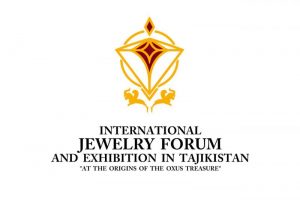 What Can Participants Expect at the First International Jewelry Forum and Exhibition of Tajikistan?
What Can Participants Expect at the First International Jewelry Forum and Exhibition of Tajikistan?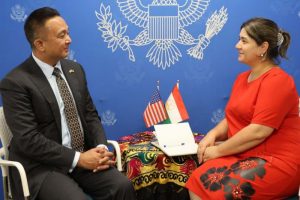 U.S. Ambassador Manuel P. Micaller: «Over the Past Five Years, Tajikistan Has Demonstrated Resilience and Determination In Its Socio-Economic Development Efforts»
U.S. Ambassador Manuel P. Micaller: «Over the Past Five Years, Tajikistan Has Demonstrated Resilience and Determination In Its Socio-Economic Development Efforts» DUSHANBE WATER PROCESS. What Tourist Excursions Will Surprise the Participants of the Water Conference This Year?
DUSHANBE WATER PROCESS. What Tourist Excursions Will Surprise the Participants of the Water Conference This Year? Shanny Campbell, ADB Country Director: Tajikistan Has One of the Best Performing Portfolios Across Asian Development Bank
Shanny Campbell, ADB Country Director: Tajikistan Has One of the Best Performing Portfolios Across Asian Development Bank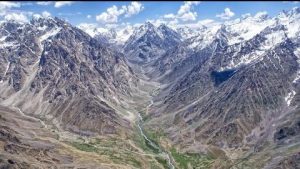 GEOLOGIST’S DAY. How Rich Is Tajikistan and Why Is It Important to Develop Geology in the Modern World?
GEOLOGIST’S DAY. How Rich Is Tajikistan and Why Is It Important to Develop Geology in the Modern World?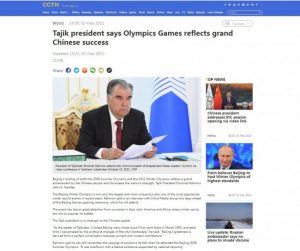 President of Tajikistan Emomali Rahmon Answers Questions of Chinese Official Media on the Eve of the Winter Olympic Games
President of Tajikistan Emomali Rahmon Answers Questions of Chinese Official Media on the Eve of the Winter Olympic Games INTERVIEW of the President of Tajikistan Emomali Rahmon with the Khovar National Information Agency on the Occasion of the SCO’s 20th Anniversary
INTERVIEW of the President of Tajikistan Emomali Rahmon with the Khovar National Information Agency on the Occasion of the SCO’s 20th Anniversary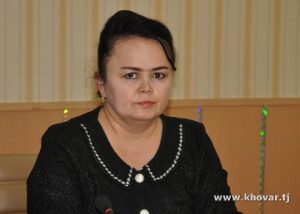 Makhfirat Khidirzoda: Tajikistan Has a Stable Legal and Regulatory Framework for Holding Presidential Election at a High Organizational Level
Makhfirat Khidirzoda: Tajikistan Has a Stable Legal and Regulatory Framework for Holding Presidential Election at a High Organizational Level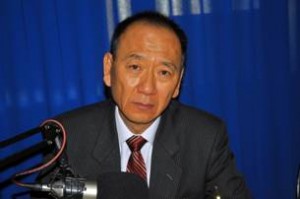 Chairman of Association of Koreans: Soft Quarantine Best Option for Tajikistan
Chairman of Association of Koreans: Soft Quarantine Best Option for Tajikistan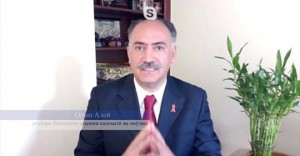 Dr. Arash Alaei: Majority of People with COVID-19 Can Recover Without Treatment
Dr. Arash Alaei: Majority of People with COVID-19 Can Recover Without Treatment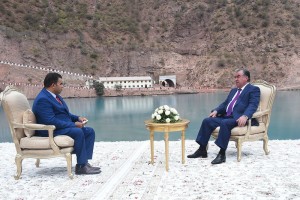 President Emomali Rahmon’s Interview to Al Jazeera Television Channel
President Emomali Rahmon’s Interview to Al Jazeera Television Channel














